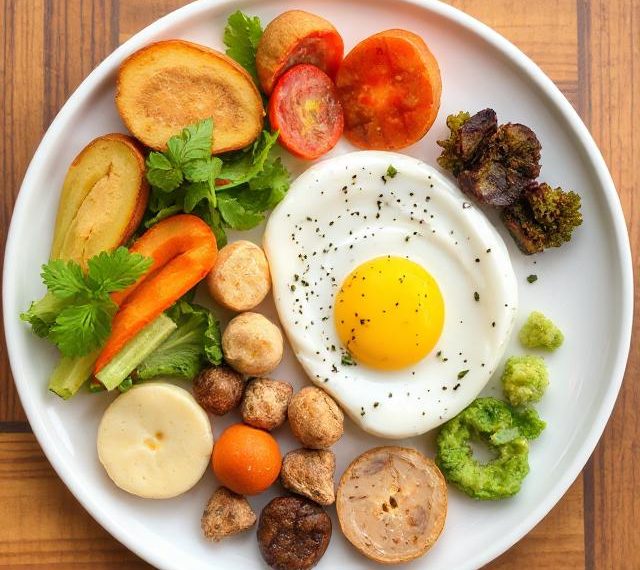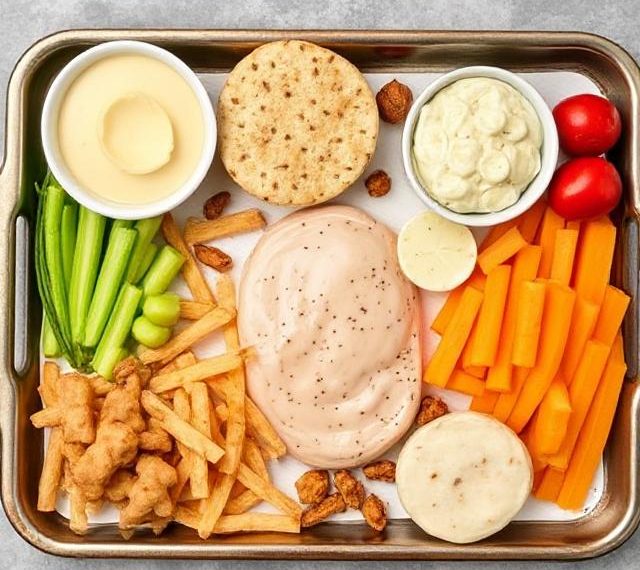Pregnancy is a miraculous time in a woman’s life, filled with excitement, anticipation, and of course, some rather unusual cravings. From pickles and ice cream to strange combinations like peanut butter and pickles, the list of pregnancy cravings seems endless. But what exactly causes these insatiable desires for certain foods during pregnancy? Let’s dive into the science behind pregnancy cravings and explore some of the most curious cravings that women experience.
Understanding Pregnancy Cravings
During pregnancy, your body undergoes numerous changes to support the growth and development of your baby. Hormonal fluctuations, increased blood volume, and changes in metabolism can all contribute to cravings for specific foods. These cravings are your body’s way of signaling what it needs to nourish yourself and your growing baby.
What Causes Pregnancy Cravings?
There is no one definitive answer to what causes pregnancy cravings, but there are several theories that may shed some light on this phenomenon. One of the most common theories is that hormonal changes during pregnancy can alter a woman’s sense of taste and smell, making certain foods more appealing than others. Another theory suggests that cravings are the body’s way of signaling a need for specific nutrients that may be lacking in the mother’s diet.
Types of Pregnancy Cravings
Pregnancy cravings can vary widely from woman to woman, with some experiencing cravings for sweet foods like ice cream or chocolate, while others may crave salty or savory foods like pickles or potato chips. Some women may even experience cravings for non-food items like dirt or chalk, a condition known as pica.
The Hormonal Changes: A Key Player in Pregnancy Cravings
One of the main reasons behind pregnancy cravings is the hormonal changes that occur in a woman’s body during pregnancy. Hormones like estrogen, progesterone, and human chorionic gonadotropin (hCG) all play a role in regulating appetite and food preferences. These hormonal fluctuations can cause women to develop cravings for certain foods that they may not have had a taste for before pregnancy.
Estrogen, for example, is known to increase sensitivity to taste and smell, making certain foods more appealing to pregnant women. Progesterone, on the other hand, can cause fluctuations in blood sugar levels, leading to cravings for sugary or carb-rich foods. And hCG, the hormone detected in pregnancy tests, is thought to play a role in triggering nausea and cravings for specific foods.
The Nutritional Needs: Cravings as a Sign of Deficiencies

Another possible explanation for pregnancy cravings is that they could be a sign of nutritional deficiencies. During pregnancy, a woman’s body requires more nutrients to support the growth and development of the baby. This increased demand for nutrients can lead to cravings for foods that are rich in certain vitamins and minerals.
For example, a craving for red meat could be a sign of iron deficiency, while a craving for dairy products could indicate a need for calcium. Cravings for salty foods might be a sign of a sodium deficiency, while cravings for sweet foods could be a result of low blood sugar levels. By listening to their cravings, women may be able to satisfy their body’s need for specific nutrients during pregnancy.
The Psychological Factors: Emotions and Stress Play a Role
It’s also important to consider the psychological factors that can contribute to pregnancy cravings. Emotions and stress can play a significant role in driving cravings for certain foods. Pregnancy is a time of great emotional and physical change, and women may turn to food as a way to cope with stress or fulfill emotional needs.
Comfort foods, in particular, are often sought out during times of stress or anxiety. Foods that are associated with positive memories or feelings of comfort can provide a sense of emotional relief during pregnancy. This psychological aspect of cravings highlights the complex relationship between food and emotions during pregnancy.
Common Pregnancy Cravings: From Pickles to Ice Cream

Now that we’ve explored some of the underlying reasons behind pregnancy cravings, let’s take a closer look at some of the most common and curious cravings that women experience during pregnancy. Pickles and ice cream is perhaps one of the most iconic pregnancy cravings, but there are plenty of other strange combinations that women have been known to crave.
Some women develop a taste for spicy foods during pregnancy, while others crave sour or tangy flavors. Some women may find themselves craving non-food items like ice, clay, or chalk, a condition known as pica. These unusual cravings can vary widely from woman to woman and may change throughout the course of the pregnancy.
Common Pregnancy Cravings
Some of the most common pregnancy cravings include:
- Chocolate
- Pickles
- Ice cream
- French fries
- Pizza
- Spicy foods
While these cravings may seem random, they often indicate a deficiency in certain nutrients. For example, a craving for chocolate may signal a need for magnesium, while a craving for pickles may indicate a need for sodium. It’s important to listen to your body and indulge these cravings in moderation to ensure you are meeting your nutritional needs.
Dealing with Unusual Cravings

Some women may experience unusual cravings during pregnancy, such as non-food items like dirt, chalk, or ice. These cravings, known as pica, can be a sign of an underlying nutrient deficiency or anemia. If you find yourself craving non-food items, it’s important to speak to your healthcare provider to address any potential health concerns.
Addressing Pregnancy Cravings: Tips for Managing the Urge
While pregnancy cravings can be difficult to resist, there are some strategies that women can use to manage their cravings and make healthier choices. One approach is to be mindful of portion sizes and try to satisfy cravings in moderation. Instead of indulging in a large serving of a particular food, women can opt for a smaller portion or find healthier alternatives.
Another strategy is to focus on incorporating a variety of nutrient-rich foods into the diet to ensure that all nutritional needs are being met. By listening to their bodies and paying attention to their cravings, women can work towards maintaining a balanced and healthy diet during pregnancy.
FAQs about Pregnancy Cravings
Here are some common questions about pregnancy cravings and their answers:
Are cravings normal during pregnancy?
Yes, cravings are a common and normal part of pregnancy. They are often a result of hormonal changes and nutrient deficiencies.
Can pregnancy cravings harm my baby?
In general, indulging in the occasional pregnancy craving is not likely to harm your baby. However, it is important to maintain a balanced diet and avoid excessive consumption of unhealthy foods.
How can I distinguish between a craving and genuine hunger?
Cravings are often sudden and specific, while hunger tends to build gradually and can be satisfied by a variety of foods. If you are unsure whether you are experiencing a craving or genuine hunger, try drinking a glass of water and waiting a few minutes to see if the craving subsides.
Should I indulge my cravings during pregnancy?
It’s okay to indulge your cravings in moderation, but it’s essential to also focus on maintaining a healthy and balanced diet for you and your baby.
What if I crave unhealthy foods during pregnancy?
If you find yourself craving unhealthy foods, try to find healthier alternatives or indulge in moderation. It’s important to listen to your body’s needs while also prioritizing your health.
Conclusion
Pregnancy cravings are a common and curious phenomenon that many women experience during pregnancy. The science behind these cravings is complex, involving hormonal changes, nutritional needs, and psychological factors. By understanding the underlying reasons behind pregnancy cravings, women can better manage their cravings and make healthier choices for themselves and their baby.
Whether it’s a craving for pickles and ice cream or a strange combination of foods, pregnancy cravings are a fascinating aspect of the pregnancy journey. By exploring the science behind these cravings and addressing common questions, we can gain a deeper understanding of this unique and often unpredictable aspect of pregnancy.







































